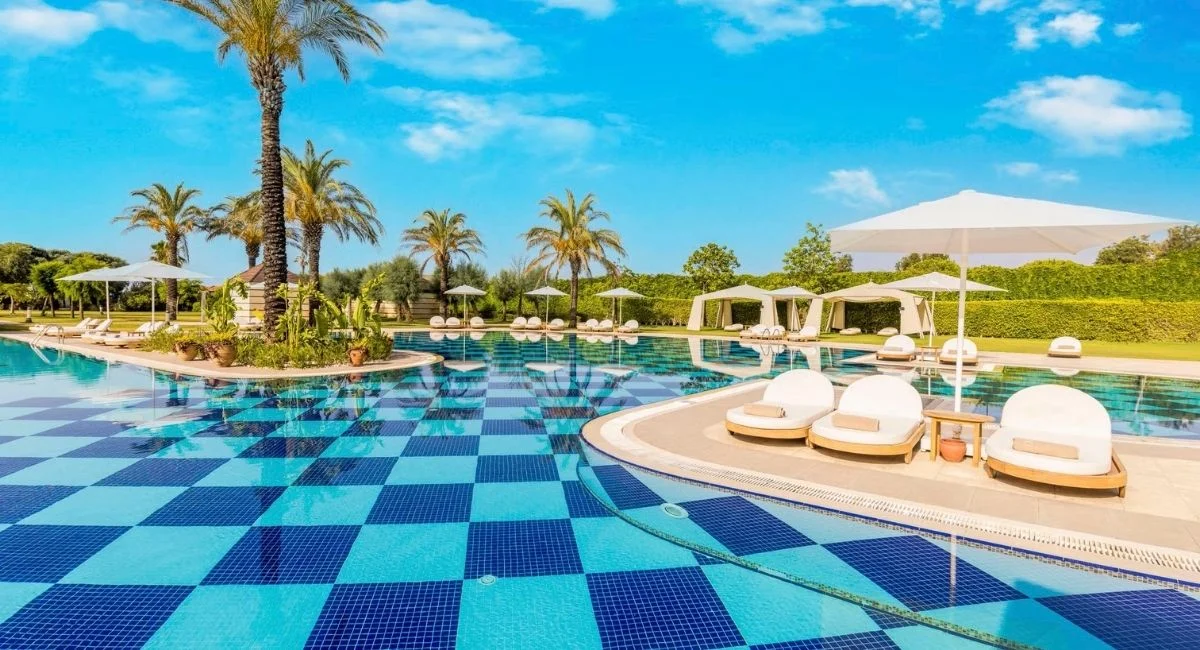
When it comes to pool design, durability is just as crucial as aesthetics. So how can you make the right decision in selecting the ideal pool cladding material? We’ve compared three widely used options—glass mosaic, ceramic, and porcelain pool tiles—to help you choose with confidence.
Why Is the Choice of Pool Cladding Material So Important?
Selecting a pool cladding material is not just an aesthetic decision—it’s a long-term investment. An improper choice may lead to wear, fading, or hygiene problems, resulting in costly consequences. So, what is the best pool finish?
From a design perspective, surface color and texture greatly impact the overall ambiance of a pool. In terms of performance, resistance to water, chemicals, and environmental factors is essential. Long-lasting materials help reduce operational costs and simplify maintenance.
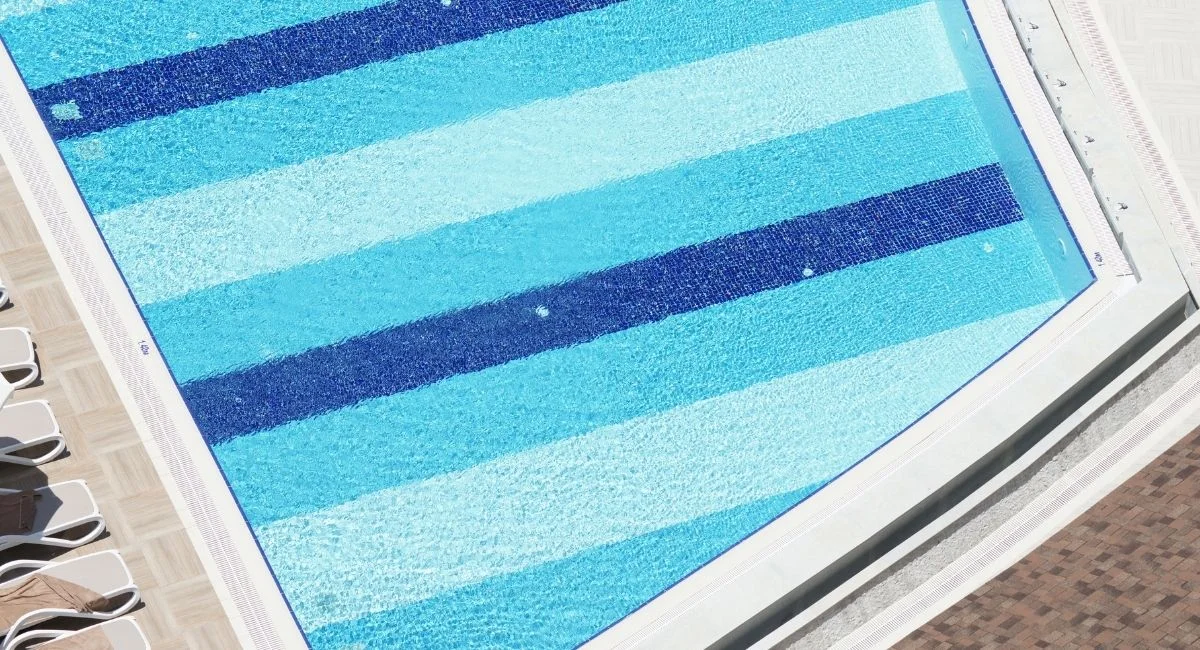
What Is Glass Mosaic?
Glass mosaics are decorative surfaces formed by combining small pieces of glass. Commonly used in kitchens, bathrooms, and pools, they reflect light to create a glossy finish.
Advantages of Glass Mosaic Pool Finishes
Glass mosaic may initially appear to be a luxurious and aesthetic option. Its glossy surface enhances the visual depth of water through light reflection. However, is this elegance sustainable?
Advantages:
- Provides a bright and elegant appearance.
- Offers a wide color range and allows for custom designs.
- Easily applied on curved or detailed surfaces.
Disadvantages:
- Wide grout lines can lead to dirt and algae buildup.
- Prone to cracks and detachment due to chemical exposure and impact.
- Requires frequent maintenance, increasing operational costs.
Pool Ceramic Tiles: Pros and Cons
Ceramic tiles are a commonly preferred pool cladding option but must be evaluated carefully in terms of durability, aesthetics, and maintenance.
Advantages:
- Broad variety of colors and patterns.
- Lower initial cost, making it a budget-friendly choice.
- Water-resistant surface.
Disadvantages:
- High water absorption over time can lead to cracking.
- Smooth surface may pose safety risks in commercial pools.
- Frequent maintenance and repair increase overall costs.
What Is Porcelain Tile?
Porcelain tiles are cladding materials fired at high temperatures, making them highly durable with a low water absorption rate. Porcelain Tiles are available in a wide range of styles—mimicking stone, marble, wood, and concrete textures—and suit various applications.
Porcelain Pool Tiles: The Best Alternative?
When it comes to pool cladding, durability, safety, and maintenance costs are the top priorities. Thanks to their low water absorption rate, porcelain pool tiles provide a waterproof structure that maintains long-term durability. Their anti-slip surfaces ensure safety for both private villas and commercial pools.
Advantages:
- Offers high resistance to water and chemicals due to its low water absorption.
- Anti Slip Pool Tiles provide enhanced safety, especially in commercial settings.
- Resistant to cracking, fading, and abrasion.
Glass Mosaic, Ceramic, or Porcelain: Which One Is Best?
When selecting a pool finish, it's essential to consider aesthetics, durability, maintenance, and cost. Here's how each material compares:
Aesthetic Appeal:
- Glass Mosaic: Offers a shiny, luxurious look and adds depth by reflecting light.
- Ceramic Tiles: Available in many colors and patterns but may fade or wear over time.
- Porcelain Tiles: Provide a natural stone texture and modern style with long-lasting appeal.
Durability:
- Glass Mosaic: Vulnerable to water and chemicals due to extensive grout lines; prone to cracking.
- Ceramic Tiles: Water- and weather-resistant, but may wear over time.
- Porcelain Tiles: With a Low Water Absorption rate, these tiles don’t wear or crack and provide added safety with Anti-slip Finishes.
Maintenance and Cleaning:
- Glass Mosaic: Requires frequent upkeep due to dirt-prone grout joints.
- Ceramic Tiles: More susceptible to staining due to porous structure; needs regular cleaning.
- Porcelain Tiles: Highly durable, easy to clean, and the most maintenance-friendly option.
Best Choice for Hotel, Villa, and Spa Pools
The right pool finish depends on how the pool is used. Hotel pools require high chemical resistance, villa pools need long-term aesthetics, and spa pools demand heat resistance. Consider the following:
Hotel Pools:
- Anti-slip surfaces are essential for guest safety.
- Materials must endure heavy use and chemicals.
- Stylish yet functional designs are preferred.
- Porcelain Tiles offer durable solutions for hotels and villas.
Villa Pools:
- Aesthetic and durable materials are key.
- Natural and customizable finishes are favored.
- Stain-Resistant and low-maintenance surfaces are beneficial.
- Porcelain Tiles remain the top choice for villa pools.
Spa & Thermal Pools:
- Heat-resistant cladding is required.
- Soothing tones and stone-like textures are ideal.
- Surfaces should be easy to clean and resist minerals.
- Porcelain is the best alternative for spa pool cladding.

A New Era in Pool Design with Serapool Porcelain
Although glass mosaics dazzle with color and light reflections, their numerous grout joints demand ongoing maintenance. Ceramic claddings offer a wide range of patterns but may deteriorate on wet surfaces. If you are seeking high durability along with refined aesthetics, a higher-end solution is essential.
This is where porcelain pool tiles and porcelain pool mosaics stand out. Their Low Water Absorption keeps them pristine for years, offering Efficiency and Durability across all pool types. With Anti-slip Finishes and sophisticated designs, they provide unmatched safety and style.
If you want your investment to last, make your decision not only on aesthetic appeal but also on longevity and maintenance costs. The right cladding directly impacts your pool’s quality and your business’s reputation.
Elevate your pool spaces with Serapool Porcelain Tiles, where aesthetics meet performance. Compared to traditional ceramic or glass mosaic, Serapool's Porcelain Tiles stand out with their Low Water Absorption, structural strength, and Anti-slip Finish. Especially in luxury and commercial projects, Non-slip Pool Tiles enhance safety and reduce long-term costs. For pools that demand both elegance and long-term performance, porcelain is the ultimate choice.
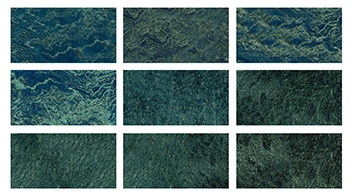
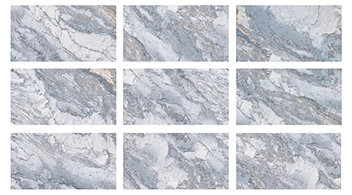
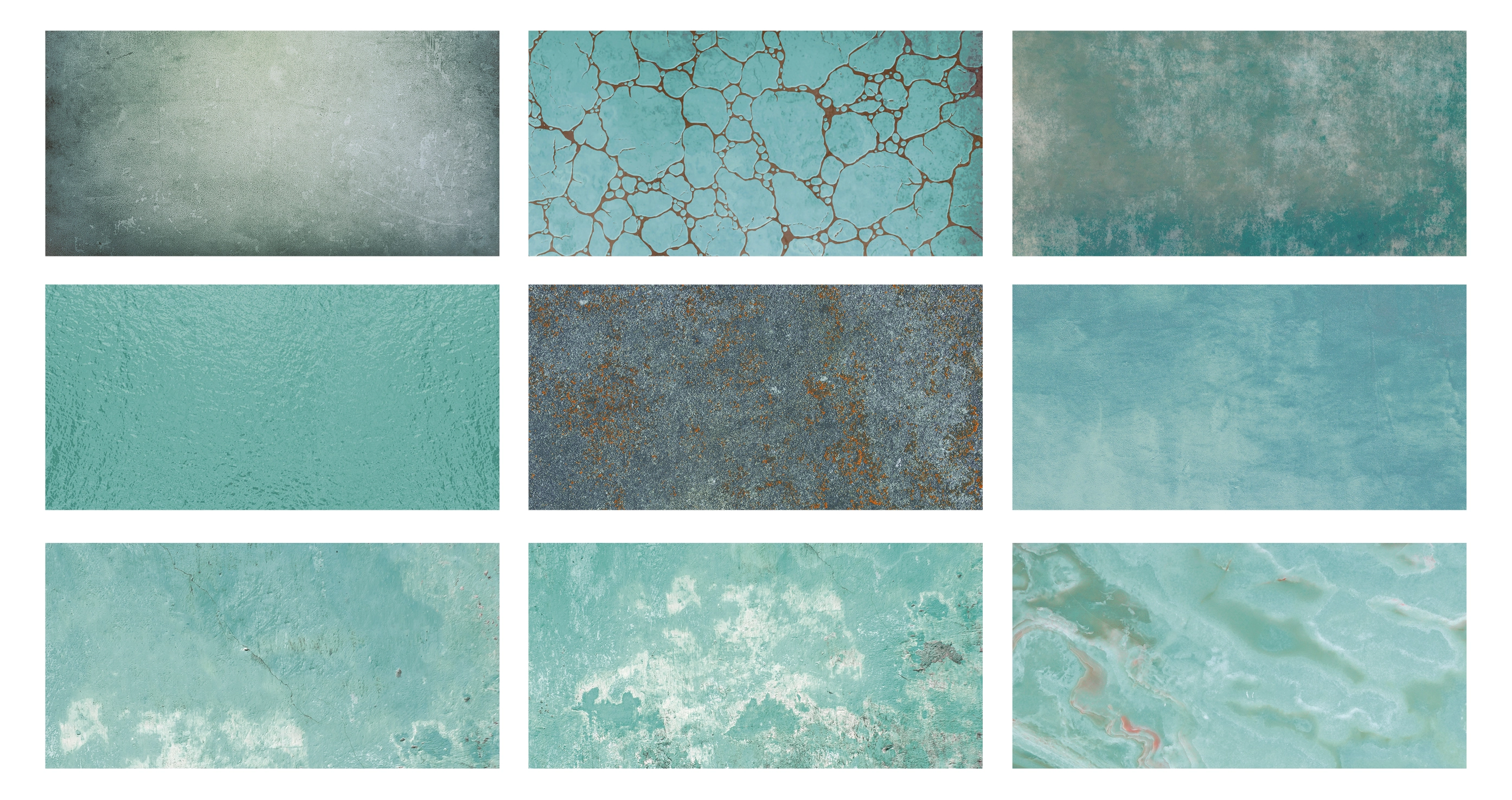
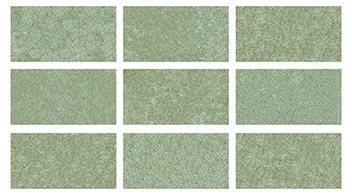
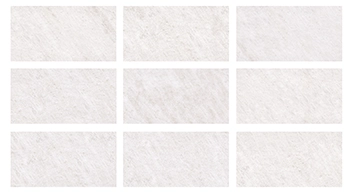
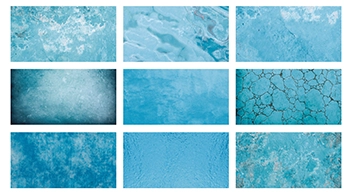
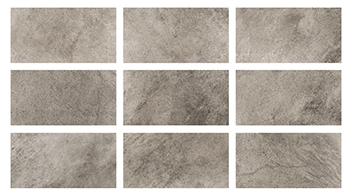
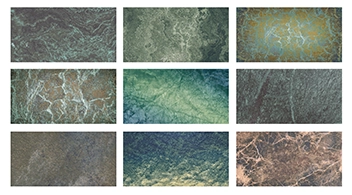
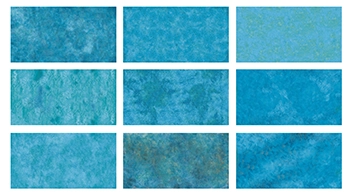
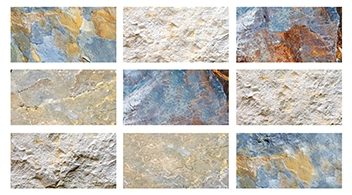
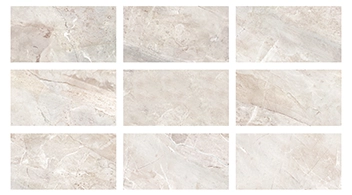
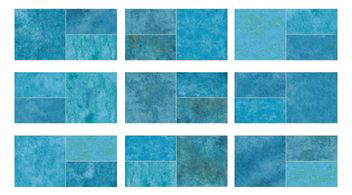
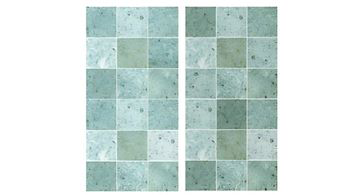
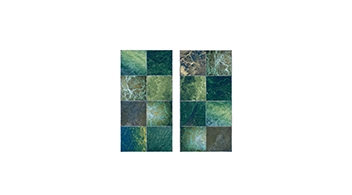
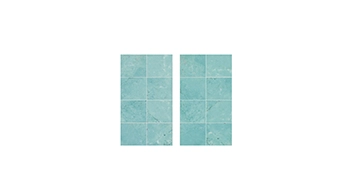

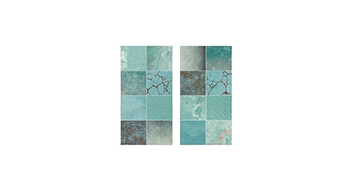
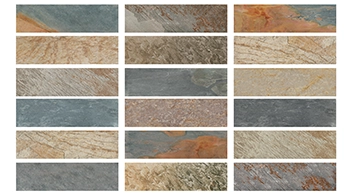
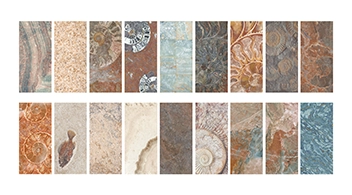
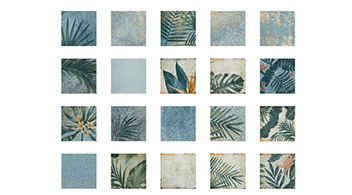
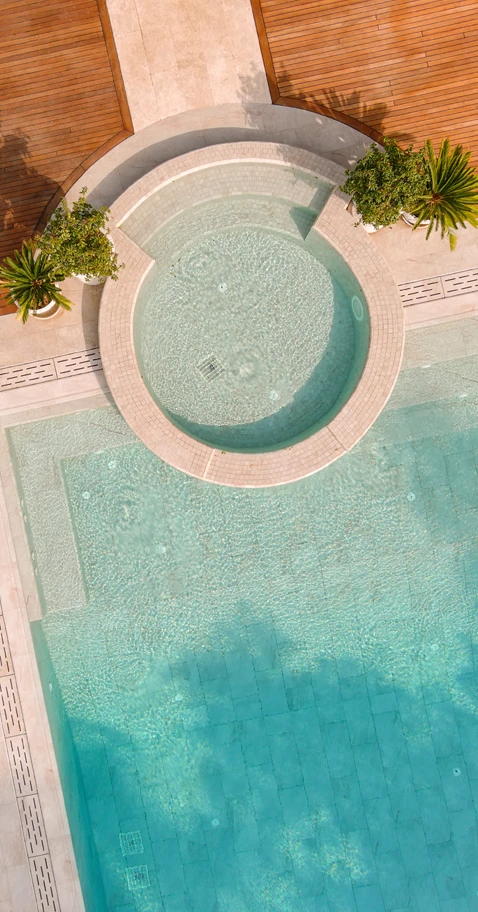




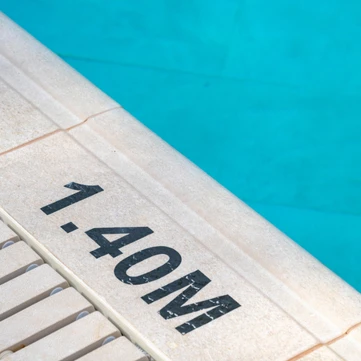
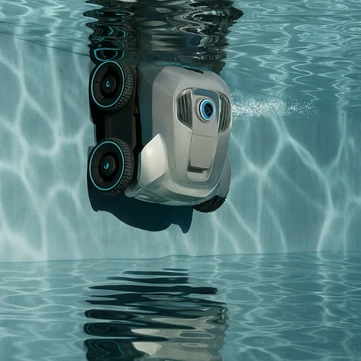
.webp)